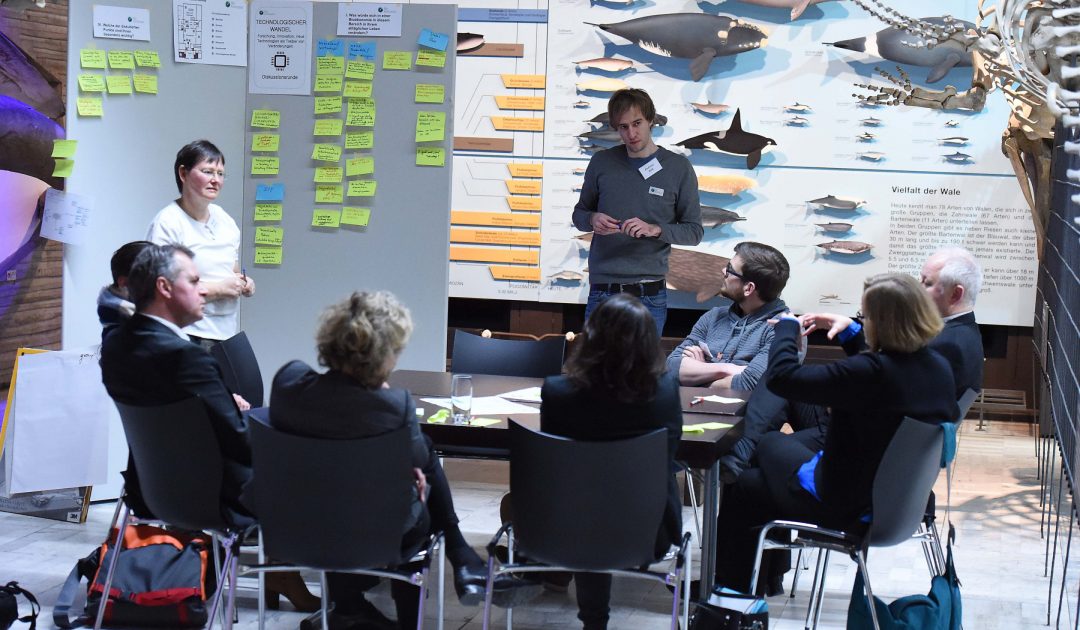Future scenarios Bioeconomy 2040
The BioKompass research project supports societal change toward a bioeconomy with the aid of future dialogs and future scenarios for the year 2040. In the two future dialogs that were held at the Senckenberg Natural History Museum in Frankfurt in 2018, the key topics for the continued development of a bioeconomy were established in conjunction with citizens and experts, and the developed scenarios were further defined. The resulting scenarios for the different futures of bioeconomy were brought alive in a creative story-telling process together with citizens and stakeholders from the economy and science. This increased the participants’ understanding of a future-oriented, bio-based economic approach. The future scenarios will be used in the project’s further progress to improve the public’s awareness for the issue and to link it to everyday situations.
The future scenarios were developed with the aid of scenario methodology in the context of workshops attended by representatives of various interest groups (stakeholders). The participants discussed questions regarding the connections and dependencies in the field of bio-based economy.
The BioKompass future scenarios form the basis for further dealings with the transition toward a bioeconomy – whether in seminar projects with young people, or with the interested public in the natural history museum’s exhibition area.
Future dialogs
Initially, representatives of stakeholders from research and industry, NGOs, and citizens were identified by means of an actor analysis. They were invited to attend the first future dialog at the Senckenberg Natural History Museum. The workshop aimed at developing relevant questions regarding the transformation toward a bioeconomy and the key topics for the ensuing scenario process.
Following the scenario process, the second future dialog took place, where the established future scenarios were presented to the wider public. At topical round tables, more than 50 participants developed suitable every-day stories for the four scenarios, thereby bringing the different future worlds to life.
Documentation of the first future dialog: key topics (in German)
Documentation of the second future dialog: future scenarios regarding the bioeconomy – long version (in German)
Future scenarios regarding the bioeconomy – short version (in German)
Scenario process
During the latter, in conjunction with experts, future scenarios were developed for the topical areas previously selected in a participatory manner. An initial workshop served to develop future assumptions about the bioeconomy, which subsequently were subjected to a cross-impact analysis. This is important in order to be able to assess the interconnections between the individual assumptions and their mutual impacts or dependencies. The resulting raw scenarios were then tested for plausibility in a second workshop. Again, stakeholders from the economy and science were involved, who applied their interdisciplinary perspective to the discussion and evaluation of the connections between the trends and the alternative developments in technology, economy, politics, and society.
